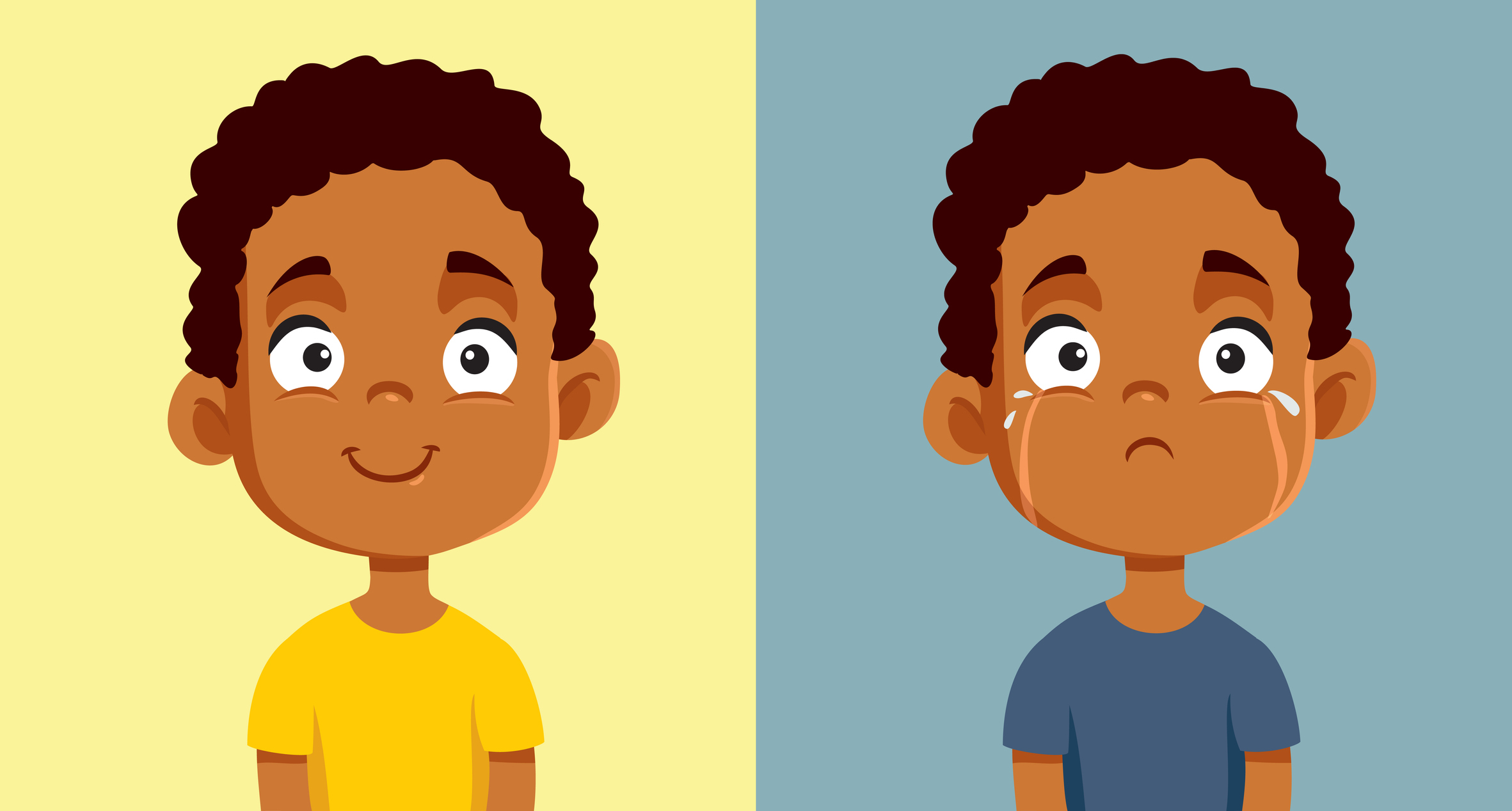Sometimes children need help from their parents and carers to recognise and manage their emotions. Children can experience a wide variety of emotions, the same as us adults, which is totally healthy. Sometimes children and young people struggle to communicate their feelings using words as they may not understand them themselves. This means that they may communicate them through their behaviour which can be worrying. Parents and carers can help children and young people to understand why they feel a certain way and how to ask for help.
 Here are our top tips on what you can do:
Here are our top tips on what you can do:
- Understand the feeling
Help your child understand the names of all the different feelings and what they mean. Depending on the age of the child, this could be done using flashcards or photographs. When playing, reading or watching TV you could talk about the emotions you are seeing. For example, “that person looks sad, angry or frustrated” or “you look very happy playing with that toy”.
- Normalise the feeling
Children are likely to notice when their parents and carers are upset so if you are open about your feelings it teaches your child to be too. If your child is sad you can say “it’s OK to be sad, I would be sad if that had happened to me”.
- Give them opportunity to talk
For younger children, taking time to play with them gives you an opportunity to bond and talk about things that may be bothering them.
For older children and young people, you could try and arrange some quality time together such as watching a film, going for a walk or a bike ride as a way to bond and offer them an opportunity to open up. If you know that something is bothering them it may be better to ask direct questions when they are calm. They may be relieved that you brought it up!
Sometimes children and young people feel comfortable opening up to other family members or friends. Encouraging them spending time with people that they are close with can also give them opportunity to open up.
- When talking about feelings
When talking with your child, let them feel the emotion and try not to fix the problem. Try to explore the reasons why they are feeling a certain way. For example, with young children you could create a story together about what has happened and what they were thinking and feeling.
Try to...
...Stay calm
...Actively listen
...Validate your child’s feelings
...Help them describe their emotions
...Repeat back to them what you think they are telling you
...Be kind
...Reassure them
Reassure Them: This could be as little as staying close, maintaining eye contact or making positive gestures such as nodding your head in understanding.
Try not to...
...Highlight the things you think they have done wrong
...Suggesting that they are feeling a certain emotion
...Demand they act in a certain way in order to ‘fix it’
...Use judgement
If you are worried about your child’s emotions, you should contact your Health Visitor or book an appointment with your GP.